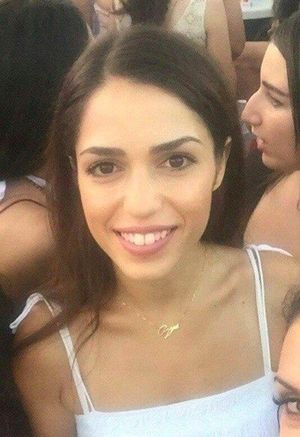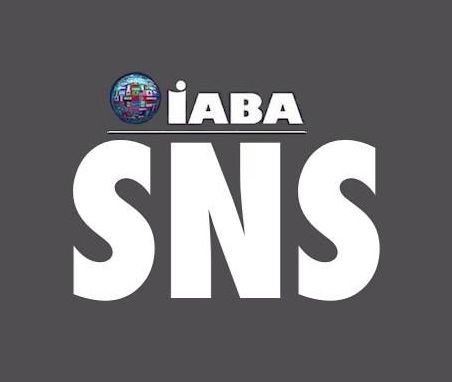Crossing the Void: Life after the PhD
An SNS Blog Series
It is a truism to say that a PhD is a difficult process. Indeed, we become so immersed in writing it and thinking about its completion that we might forget what comes next. The post-submission and post-viva periods are very peculiar because one enters a realization phase in which they need to come to terms with the fact that they are entering the “real world” and the struggle for job security, which is becoming more and more far-fetched in academia. Leaping from the PhD to the next stage can entail disappointment, frustration and anxiety.
This blog series is about sharing our experiences of this leap. Since we are all scholars in the field of life writing, we believe that to write about this period of our lives, daunting as it might have been or continues to be, can have positive outcomes. Writing about this struggle can help current PhD students understand what the next stage entails and thus better prepare for it. It can provide both students and early-career researchers with examples of professional pathways that do not necessarily include an academic job, familiarize them with the pitfalls of non-tenure academic positions, and provide access to our thoughts and feelings as we experience this unstable stage.
This initiative, however, will not be possible without your contributions. We are therefore very happy to invite you to share your experiences with us so as to build through this blog series a sense of community and support among PhD students and early-career scholars in the field of life writing. In this first blog entry, I will make a start by talking about how I have tried leaping from the PhD to professional life and how the PhD influenced me as a person.
I am currently working as a lecturer at the University of Central Lancashire in Cyprus. I finished my PhD in 2014 at the University of Manchester, UK and moved back home, where I have taught since then. While I was doing my PhD, I worked primarily alone and at home. Throughout the four years of my studies I have learned a lot not only in terms of academic knowledge but also of self-awareness. Working in isolation does help me concentrate, but working with trauma narratives as well is, if I may describe it as such, painful. Reading and writing about graphic memoirs of childhood trauma, especially when it comes to sexual trauma and incest, has significantly affected me. In addition to the need to write to an appropriate level of quality and receiving rounds and rounds of feedback suggesting that I was still not good enough, investigating women and girls’ suffering and trauma, depicted both visually and verbally, was for me a kind of self-inflicted torture. There were many times when I got very close to giving up. Countless sleepless nights, anxiety, and insecurities accompanied my ongoing writing and editing.
My supervisor used to tell me that this is how a PhD is: it makes you and it breaks you and you learn to survive through it. Given that I did my PhD just after my undergraduate and MA studies, upon entering it I was, looking back at it, not as mature as I had to be. Apart from everything else my PhD taught me, it forced me to learn to accept and deal with criticism and failure. It taught me to learn to defend myself even if I was not the most self-confident person, and to be modest and appreciative of the people who, each in their own way, supported me through it. It has also made me greatly appreciate the value of life writing. It is the channel that gave me access to gender inequalities, sexual and other forms of childhood trauma, the silence that exists around such issues, and the power of speaking about them. Apart from everything else, after finishing my PhD, my primary desire was to tell, inform and teach as much as I could about such issues and to make young people aware; this is why I feel lucky to have a teaching post.
Despite having to teach traditional modules that most of the times have nothing to do with life-writing, I always try to make room during my sessions to give my students access to its value while also keeping in touch with the field through my research. Indeed, I believe that researching and publishing is yet another way to inform people, or at least it should be. I firmly believe that academic research in our field is anything but trapped in the ivory tower of academia as I was once told during a workshop and it is important to make people aware of this.
The struggle towards securing an academic position after the PhD is even more difficult than the actual degree and hence the skills acquired throughout it are helpful when it comes to interviews and publishing, for example. Deciding to stick to academia has its pros and cons. Going through years of part-time posts, having to combine two or more jobs at the same time just to get by while also publishing and attending conferences with a very limited budget is not easy. In addition, it seems that no matter how much you try to do, you always have the sense that you are a step behind. Despite everything however, I do love research and teaching and this is why I chose this insecure path.
It is, nevertheless, also important to note that my circumstances have allowed me to do so. Had I been in a different situation, I am not sure this would have been possible. Had I been a mother, for example, during that unstable period and had I needed to support a family, I probably would have pursued a more stable career outside academia. Having followed this one, I have realized that people who can understand both the problems and the joys that come along with this choice are essential in one’s life. While I was in Manchester, I made life-long friends with other PhD students and their support since then has been invaluable. Nadine Muller’s blog “The New Academic” has also allowed me access into a larger community of PhD students and academics, who share their personal stories and advice
in relation to PhD and viva survival, academic job interviews, building strong CVs, publishing and effective teaching to name just a few topics.
The aim of this blog series is similar.
The idea emerged in May, 2016, when I attended the 10th IABA World Conference, “Excavating Lives,” at the University of Cyprus. Apart from it being one of the most enjoyable conferences I have ever attended, what I came to realise was that there is an impressive bond between the established scholars in the field of life writing and the postgraduate students and early-career scholars such as myself. The eagerness of the older generation of life-writing scholars to support the younger generation and to provide ground for its progression was prevalent throughout the conference and continues to be after it. During the conference, I had the chance to contribute with a brief talk to the post-graduate and early-career researcher workshop organized by the SNS Network. It was then that we came up with the idea of this blog series, which we imagine as a space that would allow early-career scholars and postgraduate students to share their experiences of anxiety, disappointment, and triumph as they finish their PhDs and struggle through life on the job market.
If you are an early-career researcher, we would like to hear about the steps you took after the PhD, the difficulties you faced and how you dealt with them. If you are a PhD student, we would love to hear about your experiences of the PhD or any concerns you might have. Overall, we want to create a space for the exchange of ideas, support and communication among students, early-career scholars and established academics in the field of life writing so as to foster collaborations and strengthen the links between members of our community. Should you have something you wish to post on the blog series, please do send your piece of no more than 800 words to iabasnsnetwork@gmail.com, In closing this post, I want to thank the SNS Network for enthusiastically supporting this idea and to express my hope that this attempt will prove fruitful and helpful in further connecting people in life writing studies and in contributing to the amazing work done by IABA.

Olga Michael's Bio
I have finished my PhD Studies in English and American Studies at the University of Manchester in 2014. My thesis examines the representation of different forms of insidious trauma and the use of pastiche as reparation in contemporary American women’s graphic memoirs. My research interests and publications focus primarily on contemporary women's graphic memoirs, feminism and the negotiation of trauma. Since 2014, I have been working as a Lecturer in English Language and Literature at UCLan Cyprus, where I lead a number of literature modules.
Olga Michael is the Editor of "Crossing the Void".


